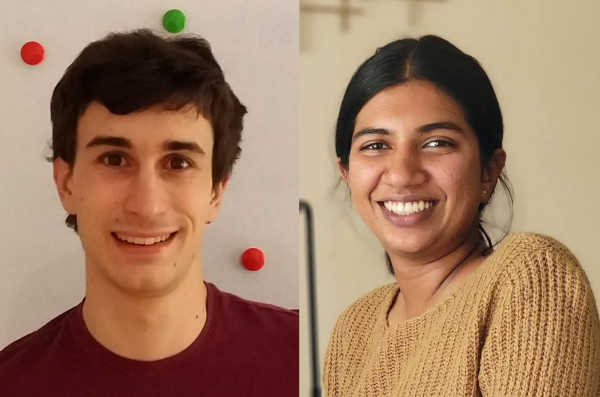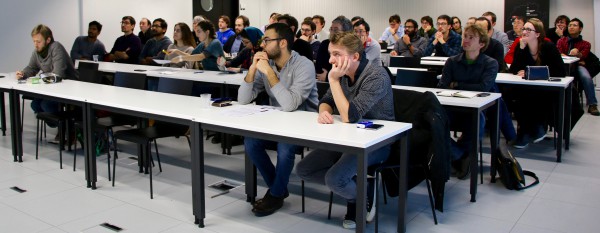MARVEL Junior Seminar — June 2023

Each seminar consists of two presentations of 25 minutes each, allowing to present on a scientific question in depth, followed by time for discussion. The discussion is facilitated and timed by the chair.
Onsite participation
11:45 — Pizzas will be served in the MED building atrium, second floor
12:15 — Seminars take place in EPFL room Coviz2 (MED 2 1124)
Online participation
Starting at 12:15:
https://epfl.zoom.us/j/68368776745
Password: 1923

Abstracts
Talk 1 — Gibbs sampling the posterior of neural networks
Giovanni Piccioli
Statistical Physics and Computational Laboratory, EPFL
We study sampling from a posterior derived from a neural network. We propose a new probabilistic model consisting of adding noise at every pre- and post-activation in the network, arguing that the resulting posterior can be sampled using an efficient Gibbs sampler. The Gibbs sampler attains similar performances as the state-of-the-art Monte Carlo Markov chain methods, such as the Hamiltonian Monte Carlo or the Metropolis adjusted Langevin algorithm, both on real and synthetic data. By framing our analysis in the teacher-student setting, we introduce a thermalization criterion that allows us to detect when an algorithm, when run on data with synthetic labels, fails to sample from the posterior. The criterion is based on the fact that in the teacher-student setting we can initialize an algorithm directly at equilibrium.
Talk 2 — Electronic structure and electric field response in twisted double trilayer graphene: theory and experiment
Anooja Jayaraj
nanotech@surfaces laboratory, Empa
Twisted Graphene based systems with superlattice electronic bands have recently emerged as a platform for realizing correlated and topological states with a high degree of control and tunability. Extensive studies have been carried out on monolayer graphene and Bernal-stacked bilayer graphene via transport experiments and theoretical calculations. Moire systems with trilayer graphene remain largely elusive. This work reports the discovery and characterization of electronic properties of twisted double ABC-stacked trilayer graphene (TDTG) by transport measurements. We also report theoretical calculations that describe the band structure of TDTG as a function of twist angles and displacement fields using tight binding Hamiltonians. This work demonstrates the existence of an intrinsic bandgap at the charge neutral point in small-angle TDTG. Both experiments and theoretical calculations reveal the tunability of the bandgap by tuning displacement fields and twist angles.
Check the list of the next MARVEL Junior Seminars here.
Low-volume newsletters, targeted to the scientific and industrial communities.
Subscribe to our newsletter